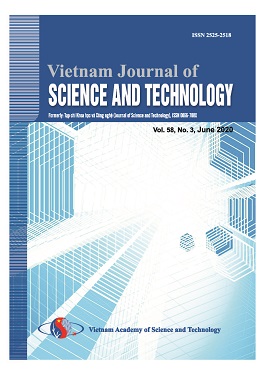Multi-material proportional topology optimization using hybrid threshold interpolation
Author affiliations
DOI:
https://doi.org/10.15625/2525-2518/19336Keywords:
Topology optimization, Proportional topology optimization, Minimum compliance problem, Multi-material designAbstract
Proportional Topology Optimization (PTO) is a non-gradient topology optimization method that is characterized by its simplicity, ease of implementation, and concurrent efficiency and accuracy. While relatively recent, this approach has already demonstrated notable achievements when compared to others. In this paper, PTO is used to solve the multi-material topology optimization problems. We consider the minimum compliance problems satisfying the mass constraint and cost constraints. The elastic modulus is interpolated as threshold functions and cost is linear functions. The functions with scaling and translation coefficients are introduced to interpolate the elastic modulus and the cost properties for multiple materials with respect to the normalized density variables. Density filtering is used to remove checkerboard patterns. A threshold projection is applied for multi-material density in order to reduce the presence of intermediate ones. The numerical examples are conducted from multiple perspectives to illustrate the proposed method. Within each perspective, various cases are compared to find the optimal solution.
Downloads
References
Sigmund O. - A 99 line topology optimization code written in Matlab. Struct. Multidisc. Optim. 21(2) (2001) 120–127.
Bendsøe M., Sigmund O. - Topology optimization: theory, methodsand applications. Springer, Berlin (2003).
Zuo W., Saitou K. - Multi-material topology optimization using ordered simp interpolation. Struct. Multidisc. Optim. 55 (2003) 477–491. https://doi.org/10.1007/s00158-016-1513-3.
López C., Burggraeve S., Lietaert P., Stroobants J., Xie X., Jonckheere S., Pluymers B., Desmet W. - Model-based, multi-material topology optimization taking into account cost and manufacturability. Struct. Multidisc. Optim. 62(6) (2020) :2951–2973. https://doi.org/10.1007/s00158-020-02641-0.
da Silveira O.A.A., Palma L.F - Some considerations on multi-material topology optimization using ordered SIMP. Struct. Multidisc. Optim. 65 (2022) 261. https://doi.org/10.1007/s00158-022-03379-7.
Biyikli E., To A.C. - Proportional topology optimization: a newnon-sensitivity method for solving stress constrained and minimum compliance problems and its implementation in MATLAB. PLoS ONE 10(12) (2015) e0145041. https://doi.org/10.1371/journal.pone.0145041
Cui M., Zhang Y., Yang X., Luo C. - Multi-material proportional topology optimization based on the modified interpolation scheme. Eng. Comput. 34(2) (2017) 287–305. https://doi.org/10.1007/s00366-017-0540-z.
Nguyen M.N., Tran M.T., Nguyen Q.H., Bui Q.T. - A multi-material Proportional Topology Optimization approach for compliant mechanism problems, European Journal of Mechanics-A/Solids 100 (2022) 104957.
Wang F., Lazarov B.S., Sigmund O. - On projection methods,convergence and robust formulations in topology optimization. Struct. Multidisc. Optim. 43(6) (2011) 767–784. https://doi.org/10.1007/s00158-010-0602-y.
Sigmund O. - Morphology-based black and white filters for topology optimization. Struct Multidisc Optim 33(4) (2007) 401–424. https://doi.org/10.1007/s00158-006-0087-x
Downloads
Published
How to Cite
Issue
Section
License

This work is licensed under a Creative Commons Attribution-ShareAlike 4.0 International License.
Vietnam Journal of Sciences and Technology (VJST) is an open access and peer-reviewed journal. All academic publications could be made free to read and downloaded for everyone. In addition, articles are published under term of the Creative Commons Attribution-ShareAlike 4.0 International (CC BY-SA) Licence which permits use, distribution and reproduction in any medium, provided the original work is properly cited & ShareAlike terms followed.
Copyright on any research article published in VJST is retained by the respective author(s), without restrictions. Authors grant VAST Journals System a license to publish the article and identify itself as the original publisher. Upon author(s) by giving permission to VJST either via VJST journal portal or other channel to publish their research work in VJST agrees to all the terms and conditions of https://creativecommons.org/licenses/by-sa/4.0/ License and terms & condition set by VJST.
Authors have the responsibility of to secure all necessary copyright permissions for the use of 3rd-party materials in their manuscript.



